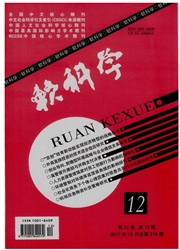

 中文摘要:
中文摘要:
采用基于agent仿真的方法,研究了知识分享过程中的囚徒困境。不同于现有研究预先设定有限策略,引入策略空间,并依据组织成员在社会空间上的距离选择交互对象。结果发现:代价占收益比例的增加不利于知识分享,组织成员人数、社会空间大小和成员自发创新程度的提高则有利于知识分享,人员流动率对知识分享水平的影响呈倒U型;知识分享水平的提高主要源于成员愿意与不分享知识的其他成员分享知识。具有高地位和影响力的领袖能够通过扩散低报复性策略,在不分享知识的情况下促使他人分享知识,并进一步加强自己的影响力,形成知识在地位阶层中由下向上流动的模式。
 英文摘要:
英文摘要:
This paper introduces strategy space, and considers interaction according to the distance of organization members in social space. The result shows that the increase of the ratio of cost to return has a negative impact on knowledge sharing;the increase of the organization's population, social space and independent innovation have a positive impact on knowledge sharing; the turnover rate has an inverted U - shaped impact on knowledge sharing; and the members tend to share knowledge with others who do not share. The main reason is that influential leaders motivate others to share knowledge without sharing their own knowledge through spreading less retaliatory strategies, which enhance further their influence in turn. The spread of less retaliatory strategies leads to a pattern in which knowledge flows from bottom to top of the status hierarchy.
 同期刊论文项目
同期刊论文项目
 同项目期刊论文
同项目期刊论文
 期刊信息
期刊信息
